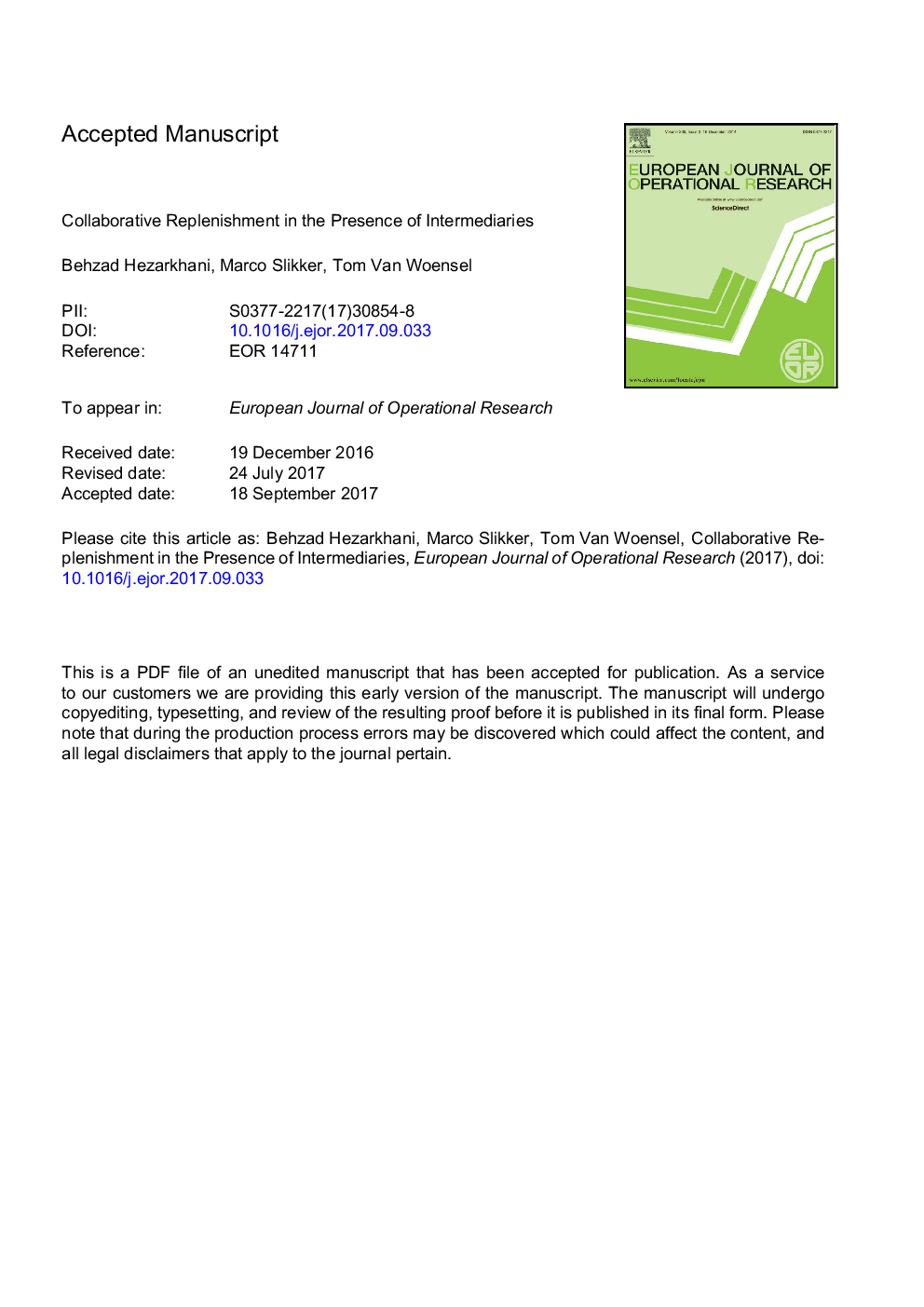| Article ID | Journal | Published Year | Pages | File Type |
|---|---|---|---|---|
| 6895208 | European Journal of Operational Research | 2018 | 39 Pages |
Abstract
In complex supply chains, downstream buyers would often replenish individually from intermediaries instead of directly dealing with original manufacturers. Although collaborative replenishment from intermediaries might generate benefits, significant cost reductions could be achieved when direct replenishments from manufacturers are considered. This paper constructs a general model to study collaborative replenishment in multi-product chains with alternative sources of supply-i.e., manufacturers and intermediaries. A collaborative organization determines the optimal choices of replenishment sources on behalf of its members to minimize collective costs. We introduce a class of cooperative games associated with these situations and give sufficient conditions for their concavity. We investigate the choice of allocation rule and its effect on supply chain efficiency when buyers strategically participate in the collaborative organization. We prove that the Shapley value coordinates the supply chain, i.e., it makes complete participation the best strategy for buyers even under asymmetric information. This setting is compared with an alternative structure where buyers can only collaborate in source-specific replenishment organizations that purchase all requested products either from intermediaries or manufacturers. Although there are always participation strategies that result in minimum collective cost, it is impossible to find allocation rules for source-specific replenishment organizations that always motivate the buyers to choose such strategies.
Related Topics
Physical Sciences and Engineering
Computer Science
Computer Science (General)
Authors
Behzad Hezarkhani, Marco Slikker, Tom Van Woensel,
